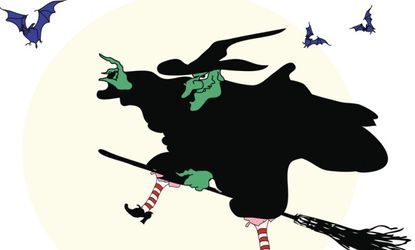Rules shmules: 5 phonetic pitfalls of shm- reduplication
With shm- you can be simultaneously grumpy and cute. But it's not always easy to figure out where to put the shm-


English shmenglish. Language shmanguage. The practice of copying a word and sticking a shm- onto it came into the U.S. with Yiddish speakers in the late 19th century, and by the 1930s it had spread into general use. It's a handy way of downplaying or dismissing something without being too aggressive or unfriendly. With shm- you can be simultaneously grumpy and cute. The rules of shm- reduplication are not taught in school, yet we have a pretty good feel for how it's done: repeat a word, putting a shm- before the vowel sound in the first syllable ("syllable, shmyllable!").
But there are some words that cause confusion about how the shm- should best be attached. A 2003 study by linguists Andrew Nevins and Bert Vaux (called, appropriately, "Metalinguistic, shmetalinguistic: the phonology of shm- reduplication") found five types of words that leave people fumbling to figure out where the shm- should go. The lack of consensus on how to handle these cases is not caused by random, ruleless anarchy, but by specific competing hypotheses about how shm- reduplication should interact with the structure of English words. They are rules in the making, not quite resolved. Here are five phonetic pitfalls of shm- reduplication.
1. BREAKFAST…SHMREAKFAST?
Subscribe to The Week
Escape your echo chamber. Get the facts behind the news, plus analysis from multiple perspectives.

Sign up for The Week's Free Newsletters
From our morning news briefing to a weekly Good News Newsletter, get the best of The Week delivered directly to your inbox.
From our morning news briefing to a weekly Good News Newsletter, get the best of The Week delivered directly to your inbox.
The shm- goes before the vowel of the first syllable (apple, shmapple). If there's already a consonant in front of the first vowel, it replaces the first consonant (bagel, shmagel). But wait. What if there are two consonants in front of the vowel? Does the rule say to replace just the first consonant of the word, or everything before the vowel? Does the 'r' of "breakfast" stay or go? Some say stay (breakfast, shmreakfast); some say go (breakfast, shmeakfast). What's your take on "broom"? (Shmoom or shmroom?) Does "floss" keep the 'l'? (Shmoss or shmloss?)
2. UNION…SHMYOONION?
Some words start with a vowel-like 'y' or 'w' sound, called a glide. Is it part of the vowel peak of the syllable? In that case we get "shmyoonion." Or is it the consonant before the vowel, to be replaced, yielding "shmoonion"?
3. WITCHES…SMITCHES?
Sign up for Today's Best Articles in your inbox
A free daily email with the biggest news stories of the day – and the best features from TheWeek.com
A number of participants in the study replaced the "shm-" with a simpler "sm-" when the word contained a "ch" or another "sh." (Rich, smich. Ishmael, smishmael.) For them, all that shushing and chushing is apparently just too much, and they compensate by lessening the noisy load.
4. OBSCENE…OBSHMENE?
Generally, the shm- likes to attach to a stressed syllable. To conform to this preference, people will sometimes move the word stress to the first syllable: arCADE -> ARcade, SHMARcade. But sometimes, they let the shm- wander into the middle of the word to find the stressed syllable. Is it "obscene, shmobscene" or "obscene, obshmene?" "Confusion, shmonfusion" or "confusion, conshmusion"? Do you let your shm- wander, or make it stay up front where you can keep an eye on it?
5. SCHMOOZE…SHNOOZE?
What to do when you want to use shm- reduplication on a word that already starts with "shm"? A very small number will forge ahead with "schmooze, schmooze," but most will simply decline to try at all. Still, about 20 to 30 percent will go with an alternative like "shnooze," "schlooze," "shmemooze," "wooze," or the semantically similar and always very useful "my ass."
Create an account with the same email registered to your subscription to unlock access.
Arika Okrent is editor-at-large at TheWeek.com and a frequent contributor to Mental Floss. She is the author of In the Land of Invented Languages, a history of the attempt to build a better language. She holds a doctorate in linguistics and a first-level certification in Klingon. Follow her on Twitter.
-
 Tuck in to British fusion cuisine
Tuck in to British fusion cuisineThe Week Recommends The trend for combining classics from two food cultures can result in dishes that are doubly delicious
By The Week UK Published
-
 Labour and nuclear weapons: a turbulent ideological history
Labour and nuclear weapons: a turbulent ideological historyThe Explainer From the 1940s to Keir Starmer, the party leadership has zigzagged in and out of love with the bomb
By Chas Newkey-Burden, The Week UK Published
-
 'Trump trial transcends sex, money and politics'
'Trump trial transcends sex, money and politics'Today's Newspapers A roundup of the headlines from the US front pages
By The Week Staff Published